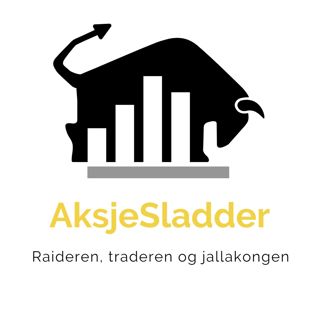
Primal Kitchen: Mark Sisson
Mark Sisson made a big bet on mayonnaise, and won: four years after launching his Paleo-friendly condiment company Primal Kitchen, he sold it for $200 million. He succeeded partly because he drew lessons from his previous failures and accomplishments - as a marathon runner, Ironman triathlete and coach, frozen yogurt proprietor, sports supplement founder, TV show host, and Paleo book author. But Mark’s biggest business came at an age when most people contemplate retirement. He developed a recipe for avocado-oil based mayonnaise, then added ketchups and other condiments. After Primal Kitchen was sold to Kraft Heinz Corporation in 2019, Mark launched a totally new business: minimalist shoes.This episode was produced by Casey Herman with music composed by Ramtin Arablouei.It was edited by Neva Grant with research help from Melia Agudelo.Our engineers were Gilly Moon and Maggie Luthar.You can follow HIBT on Twitter & Instagram, and email us at hibt@id.wondery.com.See Privacy Policy at https://art19.com/privacy and California Privacy Notice at https://art19.com/privacy#do-not-sell-my-info.
11 Mar 20241h 7min

Supercharging Lithium-Ion Batteries with Gene Berdichevsky of Sila Nanotechnologies
Gene Berdichevsky and his team have been working for over a decade to solve a major problem: Lithium-ion batteries are not getting any better. They power our cell phones and laptops and nearly every other modern, rechargeable device—and at this point have reached their energy-storing limit.This week on How I Built This Lab, Gene discusses a new approach that could eventually make lithium-ion batteries 40% more efficient, unlocking a future where electric vehicles and other battery-powered products are cheaper, recharge faster and last longer on a single charge.This episode was researched and produced by Chris Maccini with music by Ramtin Arablouei.It was edited by John Isabella. Our audio engineer was Neal Rauch.You can follow HIBT on X & Instagram, and email us at hibt@id.wondery.com.See Privacy Policy at https://art19.com/privacy and California Privacy Notice at https://art19.com/privacy#do-not-sell-my-info.
7 Mar 202440min

Uncle Nearest Premium Whiskey: Fawn Weaver (2021)
In 2016, Fawn Weaver became fixated on a New York Times article telling the little-known story of Nearest Green, a formerly enslaved man who taught Jack Daniel—yes, that Jack Daniel—how to make Tennessee whiskey. After diving deeper into the story, Fawn ended up purchasing the farm in Lynchburg, Tennessee where Nearest had taught Jack how to distill; and she began meeting the descendants of both men. She eventually decided the best way to preserve Nearest’s legacy was with a bottle of the best Tennessee whiskey she could make. With no background in distilling, she threw herself into the insular world of spirit-making, an industry mostly dominated by white men. In the eight years since Fawn first discovered his story, Uncle Nearest Premium Whiskey has become one of the fastest-growing whiskey brands in the world, and one of the most awarded American whiskeys.This episode of How I Built This was produced by Liz Metzger and edited by Neva Grant. Research help from Claire Murashima, with music by Ramtin Arablouei. You can follow HIBT on X & Instagram, and email us at hibt@id.wondery.com.See Privacy Policy at https://art19.com/privacy and California Privacy Notice at https://art19.com/privacy#do-not-sell-my-info.
4 Mar 20241h 12min

The peril (and promise) of AI with Tristan Harris: Part 2
What if you could no longer trust the things you see and hear?Because the signature on a check, the documents or videos presented in court, the footage you see on the news, the calls you receive from your family … They could all be perfectly forged by artificial intelligence.That’s just one of the risks posed by the rapid development of AI. And that’s why Tristan Harris of the Center for Humane Technology is sounding the alarm.This week on How I Built This Lab: the second of a two-episode series in which Tristan and Guy discuss how we can upgrade the fundamental legal, technical, and philosophical frameworks of our society to meet the challenge of AI.To learn more about the Center for Humane Technology, text “AI” to 55444.This episode was researched and produced by Alex Cheng with music by Ramtin Arablouei.It was edited by John Isabella. Our audio engineer was Neal Rauch.You can follow HIBT on X & Instagram, and email us at hibt@id.wondery.com.See Privacy Policy at https://art19.com/privacy and California Privacy Notice at https://art19.com/privacy#do-not-sell-my-info.
29 Feb 202432min

Poshmark: Manish Chandra
When the iPhone 4 was released in 2010, Manish Chandra was dazzled by its picture quality, and saw an opportunity for a new type of mobile marketplace. A year later, he and three co-founders launched Poshmark, a shopping app for second-hand clothes and accessories, meant to capture the feel of going thrifting with your friends. The online community grew quickly and vocally—when Poshmark raised shipping fees, users lobbied furiously to lower them, and won. The company faced many more growing pains before being acquired by the Naver Corporation for $1.2 billion in 2023. It now has over 100 million registered users around the world.This episode was produced by Sam Paulson with music composed by Ramtin Arablouei.It was edited by Neva Grant with research help from Katherine Sypher.Our engineers were Robert Rodriguez and Josh Newell.You can follow HIBT on Twitter & Instagram, and email us at hibt@id.wondery.com.See Privacy Policy at https://art19.com/privacy and California Privacy Notice at https://art19.com/privacy#do-not-sell-my-info.
26 Feb 20241h 6min

The peril (and promise) of AI with Tristan Harris: Part 1
When Tristan Harris co-founded the Center for Humane Technology in 2018, he was trying to educate tech leaders and policymakers about the harms of social media.But today, he’s sounding the alarm about a different technology — one that he says could pose an existential threat to the entire world …Artificial intelligence.This week on How I Built This Lab: the first of a two-episode series in which Tristan and Guy examine the serious risks posed by the rapid development and deployment of AI — and what we can do to make sure this powerful technology is used for good.You can learn more about “The Social Dilemma,” the 2020 Emmy-winning docudrama featuring Tristan, here: https://www.thesocialdilemma.com/.This episode was researched and produced by Alex Cheng with music by Ramtin Arablouei.It was edited by John Isabella. Our audio engineer was Neal Rauch.You can follow HIBT on X & Instagram, and email us at hibt@id.wondery.com.See Privacy Policy at https://art19.com/privacy and California Privacy Notice at https://art19.com/privacy#do-not-sell-my-info.
22 Feb 202428min

Sonos: John MacFarlane
In 2002, John MacFarlane and his co-founders began tinkering on what was then an ambitious idea: create a new way to enjoy music throughout the home, without wires. At the time, streaming and the iPod were brand new, and smart speakers were over a decade away. But the team at Sonos engineered a top-quality wireless sound system, and–with many fits and starts–integrated it with mobile technology and, eventually, Siri and Alexa. Along the way, John and his team contended with the early unreliability of WiFi, and faced stiff competition from much bigger companies. But today, Sonos is an established player in music, with projected sales of over $1.5 billion this year. This episode was produced by Katherine Sypher with music composed by Ramtin Arablouei.It was edited by Neva Grant with research help from Sam Paulson.You can follow HIBT on Twitter & Instagram, and email us at hibt@id.wondery.com.See Privacy Policy at https://art19.com/privacy and California Privacy Notice at https://art19.com/privacy#do-not-sell-my-info.
19 Feb 20241h

Powering cars with solar energy with Steve Fambro of Aptera Motors (2023)
There’s a new car coming to market that will probably make its owners search out the sunniest spots in the parking lot… Aptera Motors is designing and manufacturing this car: a plug-in electric hybrid that can run up to 40 miles on a single, solar-powered charge. This week on How I Built This Lab, Steve Fambro shares how he and his co-CEO revived their once-defunct auto company thanks to the promise of solar energy. Plus, Steve’s take on why today’s vehicles require so much energy, and how Aptera’s novel design could change the way we think about cars forever…This episode was produced by Kerry Thompson and edited by John Isabella, with music by Ramtin Arablouei. Our audio engineer was Neal Rauch. You can follow HIBT on Twitter & Instagram, and email us at hibt@id.wondery.com.See Privacy Policy at https://art19.com/privacy and California Privacy Notice at https://art19.com/privacy#do-not-sell-my-info.
15 Feb 202439min





















